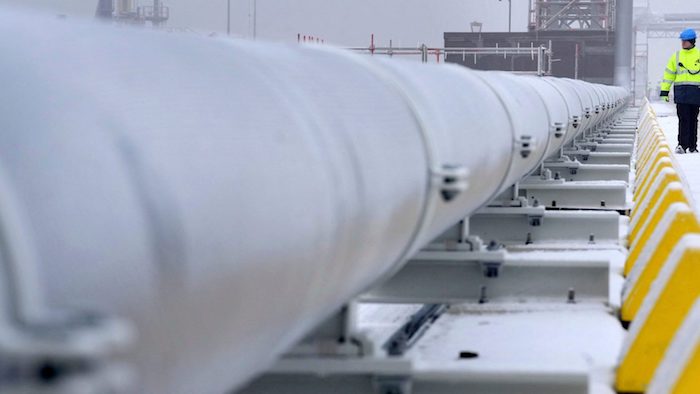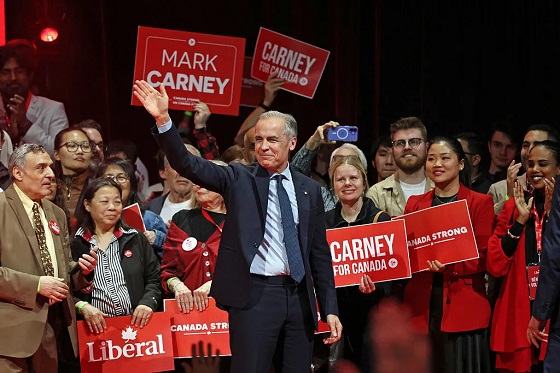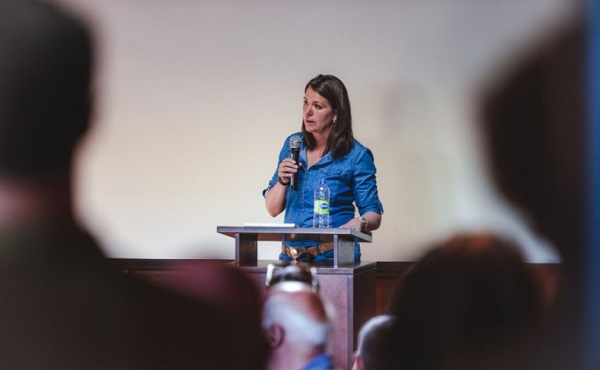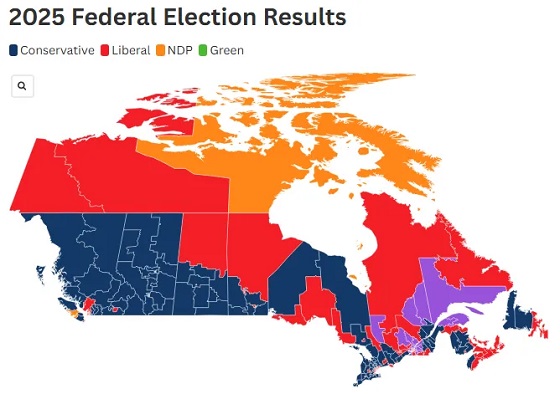Alberta
2022 – the year fossil fuels once again became a preferred source of reliable, affordable energy

A worker walks past gas pipes at Uniper’s new LNG import terminal in Wilhelmshaven, northern Germany on December 17, 2022. Getty Images photo
From the Canadian Energy Centre Ltd.
By David Yager
David Yager is an oilfield service executive, oil and gas writer, and energy policy analyst. He is author of From Miracle to Menace – Alberta, A Carbon Story.
The only part of the demise of oil and gas that was successful was reduced supply
It seems like just the other day the wrath of the world was coming down on oil sands and coal.
To protect the atmosphere, Canada has been reducing coal-fired power generation for years. It started in Ontario then moved to Alberta. Saskatchewan is next. New Brunswick is supposed to stop by 2030, but that province claims it can’t be done.
Global coal consumption is rising again because it meets the cost and availability requirement created by energy shortages and rising prices. On December 16, the International Energy Agency reported, “The world’s coal consumption is set to reach a new high in 2022 as the energy crisis shakes markets.”
For energy, the biggest single change in 2022 is the remarkable shift in public attitudes towards fossil fuels.
The global energy complex is under assault by Russia’s invasion of Ukraine, the exposed shortcomings of wind and solar, years of underinvestment in fossil fuels, and rising inflation and interest rates.
But for the past ten years, there has been an all-out crusade against fossil fuels. Oil company CEOs were branded climate criminals. It was morally reprehensible to own fossil fuel company shares or loan money to oil, gas or coal producers. Elections were won in Canada, the US and in Europe on pledges to replace fossil fuels.
No cost was too great, because the cost of doing nothing thus permitting unchecked climate damage was greater.
What happened? How did the channel change to rapidly? Why after years of public and political attacks on the source of over 80 per cent of the world primary energy, has affordable energy on demand now become more important than where it comes from?
Price, the most fundamental driver of economics and human behavior.
The November 2022 global survey from public opinion research firm IPSOS titled “What Worries The World” tells the story.
IPSOS explains, “This 29-country Global Advisor survey was conducted…among 20,466 adults aged 18-74 in Canada, Israel, Malaysia, South Africa, Turkey and the United States, 20-74 in Indonesia and Thailand, and 16-74 in all 21 other countries.”

IPSOS charts the top six issues for the past two years. Poverty, crime, unemployment and corruption have always been important, and consistently ranked among the top five.
But in November 2020, inflation only registered among eight per cent of respondents. Two years later it is 42 per cent. Coronavirus and the unemployment that accompanied the lockdowns were the top two issues. The others remain in a consistent range.
Two years ago was the peak of the “oil is dead” mantra, and when many bright ideas for a fossil fuel free future were concocted. In a post-pandemic world, multiple voices claimed we must Build Back Better, ensure a Resilient Recovery, engineer the Great Reset.
The plan was to use government policy and borrowed money to create jobs through the large-scale replacement of fossil fuels.
Coined the “energy transition,” it was achievable and inevitable thanks to incredible advances in renewable energy cost and supply. Canada – the world’s fifth largest combined oil and gas producer – could lead the charge with minimal disruption thanks to a new federally-funded retraining program for displaced oil workers. This was called a Just Transition.
What happened?
The invisible hand of Adam Smith punched the world in the nose.
The only part of the demise of fossil fuels that was successful was reduced supply. As the economy recovered, consumers learned the hard way that low carbon energy sources were terribly oversold in terms of reliability, and demand for fossil fuels outstripped supply.
Prices for fossil fuels rose at the same time that inflation and interest rates reduced disposal income.
As demand grew, fossil fuel shortages were reflected in the price. When Russia – one of the world’s largest oil, gas and coal suppliers – invaded Ukraine, the gravity of the situation escalated immediately.
What the IPSOS survey dramatically illustrates is the number one concern for the world as 2022 ends is the rising cost of everything.
We’ve been told repeatedly that continued fossil fuel consumption will cause serious climate disruptions. No expense today will exceed the cost of future damages.
However, the more pressing issue today is still being alive in 2050 because of the rising cost of everything, including energy. Worrying about what the temperature, storm intensity or chemical composition of the atmosphere may be in 28 years has become an unaffordable luxury.
So fossil fuels are once again what they have always been – reliable and affordable sources of energy.
Happy New Year.
Alberta
It’s On! Alberta Challenging Liberals Unconstitutional and Destructive Net-Zero Legislation

“If Ottawa had it’s way Albertans would be left to freeze in the dark”
The ineffective federal net-zero electricity regulations will not reduce emissions or benefit Albertans but will increase costs and lead to supply shortages.
The risk of power outages during a hot summer or the depths of harsh winter cold snaps, are not unrealistic outcomes if these regulations are implemented. According to the Alberta Electric System Operator’s analysis, the regulations in question would make Alberta’s electricity system more than 100 times less reliable than the province’s supply adequacy standard. Albertans expect their electricity to remain affordable and reliable, but implementation of these regulations could increase costs by a staggering 35 per cent.
Canada’s constitution is clear. Provinces have exclusive jurisdiction over the development, conservation and management of sites and facilities in the province for the generation and production of electrical energy. That is why Alberta’s government is referring the constitutionality of the federal government’s recent net-zero electricity regulations to the Court of Appeal of Alberta.
“The federal government refused to work collaboratively or listen to Canadians while developing these regulations. The results are ineffective, unachievable and irresponsible, and place Albertans’ livelihoods – and more importantly, lives – at significant risk. Our government will not accept unconstitutional net-zero regulations that leave Albertans vulnerable to blackouts in the middle of summer and winter when they need electricity the most.”
“The introduction of the Clean Electricity Regulations in Alberta by the federal government is another example of dangerous federal overreach. These regulations will create unpredictable power outages in the months when Albertans need reliable energy the most. They will also cause power prices to soar in Alberta, which will hit our vulnerable the hardest.”
Finalized in December 2024, the federal electricity regulations impose strict carbon limits on fossil fuel power, in an attempt to force a net-zero grid, an unachievable target given current technology and infrastructure. The reliance on unproven technologies makes it almost impossible to operate natural gas plants without costly upgrades, threatening investment, grid reliability, and Alberta’s energy security.
“Ottawa’s electricity regulations will leave Albertans in the dark. They aren’t about reducing emissions – they are unconstitutional, ideological activist policies based on standards that can’t be met and technology that doesn’t exist. It will drive away investment and punish businesses, provinces and families for using natural gas for reliable, dispatchable power. We will not put families at risk from safety and affordability impacts – rationing power during the coldest days of the year – and we will continue to stand up for Albertans.”
“Albertans depend on electricity to provide for their families, power their businesses and pursue their dreams. The federal government’s Clean Electricity Regulations threaten both the affordability and reliability of our power grid, and we will not stand by as these regulations put the well-being of Albertans at risk.”
Related information
- Conference Board of Canada socio-economic Impacts of Canada’s 2030 Emissions Reduction Plan – (April 2025)
- Alberta Electric System Operator’s position on Canadian Energy Regulations
Alberta
Alberta’s future in Canada depends on Carney’s greatest fear: Trump or Climate Change

Oh, Canada
We find it endlessly fascinating that most Canadians believe they live in a representative democracy, where aspiring candidates engage in authentic politicking to earn their place in office. So accustomed are Canada’s power brokers to getting their way, they rarely bother to cover their tracks. A careful reading of the notoriously pliant Canadian press makes anticipating future events in the country surprisingly straightforward.
Back in December, when Pierre Poilievre was given better than 90% odds of replacing Prime Minister Justin Trudeau—and Mark Carney was still just an uncharismatic banker few had heard of—we engaged in some not-so-speculative dot-connecting and correctly predicted Carney’s rise to the top spot. Our interest was driven by the notoriously rocky relationship between Ottawa and the Province of Alberta, home to one of the world’s largest hydrocarbon reserves, and how Carney’s rise might be a catalyst for resetting Canada’s energy trajectory. In a follow-up article titled “The Fix Is In,” we laid out a few more predictions:
“Here’s how the play is likely to unfold in the weeks and months ahead: Carney will be elected Prime Minister on April 28 by a comfortable margin; [Alberta Premier Danielle] Smith will trigger a constitutional crisis, providing cover for Carney to strike a grand bargain that finally resolves longstanding tensions between the provinces and Ottawa; and large infrastructure permitting reform will fall into place. Protests against these developments will be surprisingly muted, and those who do take to the streets will be largely ignored by the media. The entire effort will be wrapped in a thicket of patriotism, with Trump portrayed as a threat even greater than climate change itself. References to carbon emissions will slowly fade…
In parallel, we expect Trump and Carney to swiftly strike a favorable deal on tariffs, padding the latter’s bona fides just as his political capital will be most needed.”
The votes have barely been counted, yet the next moves are already unfolding…
“Alberta Premier Danielle Smith says she’ll make it easier for citizens to initiate a referendum on the province’s future in Canada, after warning that a Liberal win in Monday’s election could spur a groundswell of support for Alberta separatism. Smith said on Tuesday that a newly tabled elections bill will give everyday Albertans a bigger say in the province’s affairs.
‘(We’re giving) Albertans more ways to be directly involved in democracy, and to have their say on issues that matter to them,’ Smith told reporters in Edmonton.
If passed, the new law would dramatically lower the number of signatures needed to put a citizen-proposed constitutional referendum question on the ballot, setting a new threshold of 10 per cent of general election turnout — or just over 175,000, based on Alberta’s last provincial election in 2023.”
“US President Donald Trump said on Wednesday that Canadian Prime Minister Mark Carney is looking to make a trade deal and will visit the White House within the next week. Trump said he congratulated Carney on his election victory when the Canadian leader called on Tuesday.
‘He called me up yesterday – he said let’s make a deal,’ Trump told reporters at the White House after a televised Cabinet meeting.”
Remember where you read it first.
-

 Alberta2 days ago
Alberta2 days agoNew Alberta Election Act bans electronic vote counting machines, lowers threshold for recalls and petitions
-

 Alberta2 days ago
Alberta2 days agoHours after Liberal election win, Alberta Prosperity Project drumming up interest in referendum
-

 2025 Federal Election1 day ago
2025 Federal Election1 day agoNDP Floor Crossers May Give Carney A Majority
-

 Alberta1 day ago
Alberta1 day agoPremier Danielle Smith hints Alberta may begin ‘path’ toward greater autonomy after Mark Carney’s win
-

 Business18 hours ago
Business18 hours agoChina’s economy takes a hit as factories experience sharp decline in orders following Trump tariffs
-

 Banks2 days ago
Banks2 days agoTD Bank Account Closures Expose Chinese Hybrid Warfare Threat
-

 2025 Federal Election2 days ago
2025 Federal Election2 days agoPost election…the chips fell where they fell
-

 Business21 hours ago
Business21 hours agoScott Bessent says U.S., Ukraine “ready to sign” rare earths deal



